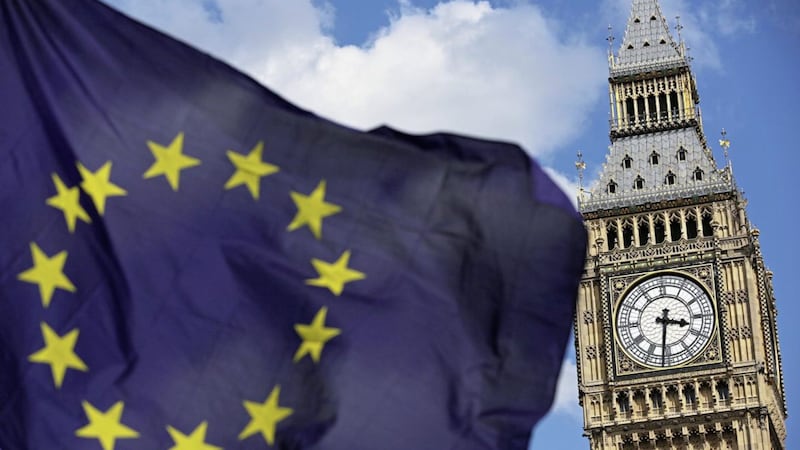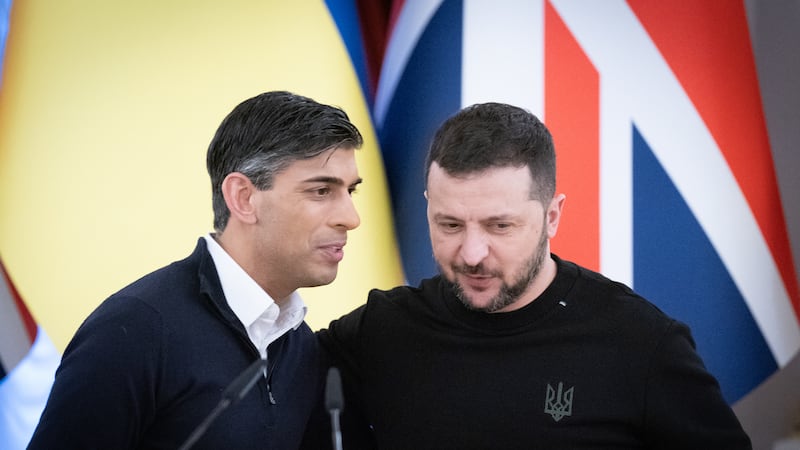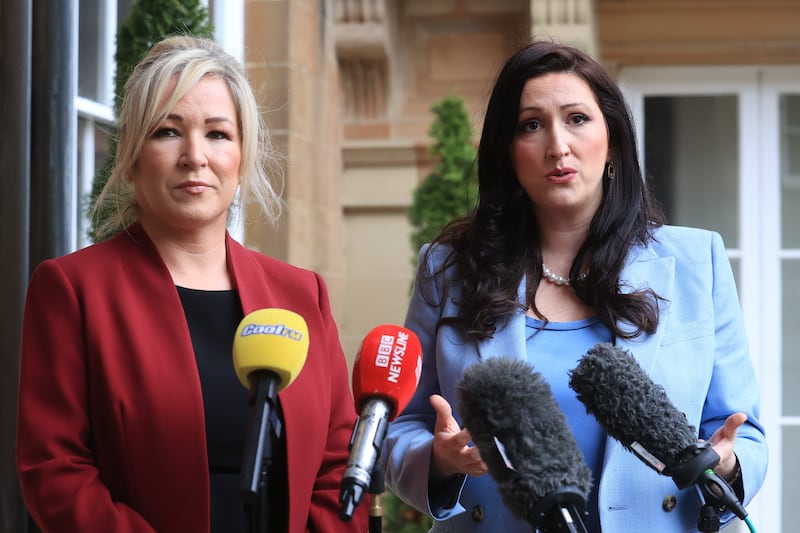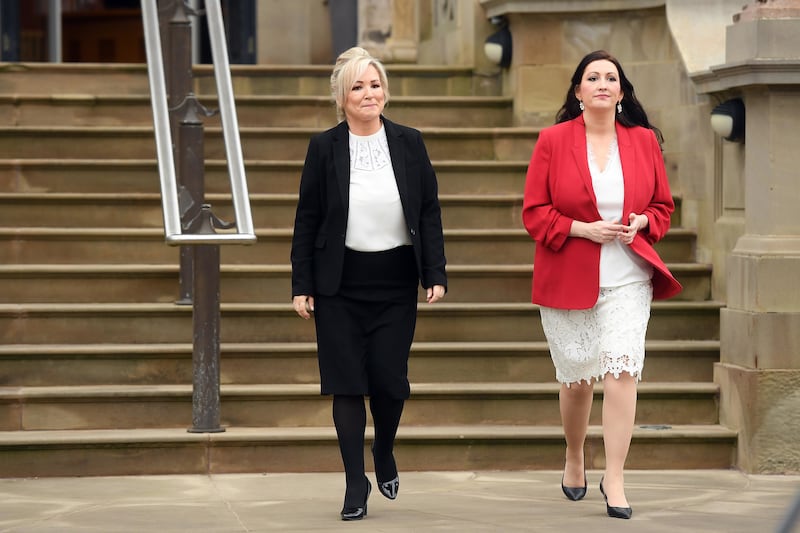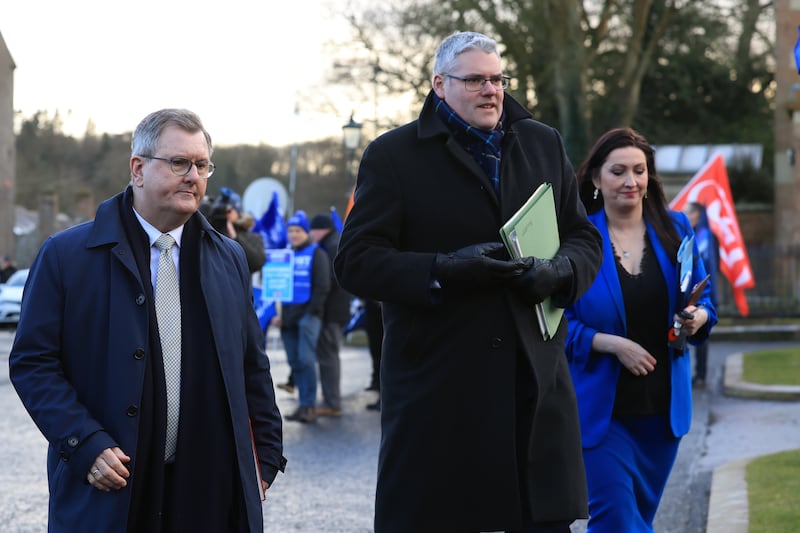A proposed 'deal' to avoid a hard border lay in tatters last night after the DUP threatened to withdraw support for Theresa May's minority government.
East Antrim MP Sammy Wilson said any attempt to "placate Dublin and the EU" by allowing Northern Ireland to have different customs rules from Britain would jeopardise the agreement to prop up the Tories.
Sinn Féin vice-president Mary Lou McDonald also claimed the plan "misses the point" and insisted special status within the EU was the only solution.
The row came as MPs warned that it appeared impossible to reconcile leaving the single market and customs union with the British government's intention to maintain a "frictionless border".
The Exiting the EU Committee also said proposals to use technology to create a 'light touch' border were "untested and to some extent speculative", although four Conservative members as well as Mr Wilson rejected the report.
The Irish government has been demanding assurances that there will be no return to a hard border before Brexit negotiations can progress to discuss trade after an European Council summit this month.
A report in The Times yesterday said British negotiators had proposed devolving more powers to Stormont to enable "customs convergence" with the Republic in areas such as agriculture and energy.
The government refused to comment on the report but DUP leader Arlene Foster said ministers had a "clear understanding that the DUP will not countenance any arrangement that could lead to a new border being created in the Irish Sea".
Former leader Peter Robinson also joined attacks on the Irish government, saying "the south needs to wind its neck in".
He claimed Dublin politicians had taken to "lecturing the UK," doing "significant harm to north/south relations".
"Sensible solutions can be found and positive outcomes are more likely to be reached if a spirit of friendship and mutual understanding exists," he said.
Ms McDonald, meanwhile, said talk about regulatory divergence and convergence "misses the point".
"The solution is for the north to be granted designated special status within the European Union as part of any final agreement. That would allow the north to remain part of the single market and the customs union."
Dublin's foreign minister Simon Coveney said Dublin was not willing to "leap into the dark" by accepting a move to the second phase of Brexit negotiations on the basis of vague assurances the border will be kept open.
He said in talks with the UK ahead of the December 14 summit, the Dublin government wants to secure "an agreed wording whereby we can agree the parameters within which we can find a solution that prevents the re-emergence of the border on the island of Ireland and all the negative consequences that flow from that".
"We believe it's possible to do that," he told the Today programme. "The area that we've focused in on is the need to give reassurance that there will not be regulatory divergence between the two jurisdictions on the island of Ireland, because if there is, then it is very hard to avoid a checking system.
"If you have different standards in terms of food safety, animal welfare, animal health, if you have different standards in relation to medical devices and the approval of drugs, how then can you maintain practical north/south co-operation as we have it today, if that regulatory divergence appears after Northern Ireland and the rest of the UK leaves the European Union."
Mr Coveney said the British government was "essentially saying 'We will solve this problem, but not just now"'.
But he said the reason why the border issue was included in the first part of negotiations, alongside Britain's financial settlement and EU citizens' rights, was precisely "so that we can give reassurance in phase one that these problems can be solved in phase two".
He said: "What the British government has been asking of the Irish government is to just 'trust us, we'll solve these issues with a broad, bold trade agreement'.
"But that may not be possible, we don't know. We can't be asked to leap into the dark by opening up phase two discussions in the hope that these issues might be resolved."
Former first minister Lord Trimble said Mr Coveney should "go back and rethink what he's saying".
"We are going to leave the EU and one of the reasons for leaving it is to have our own say no what the regulatory framework for British industry is to be," the Conservative peer told Today.
"He is saying we should continue to be bound in all circumstances by the EU regulatory framework. What would then be the point of leaving?"
Lord Trimble said he backed a British government proposal to avoid the need for border checks by exempting smaller companies from tariffs when moving goods between Northern Ireland and the Republic.
The Republic should ask Brussels to change EU law to relieve it of "the obligation to put infrastructure on the Irish side of the border", he said.
